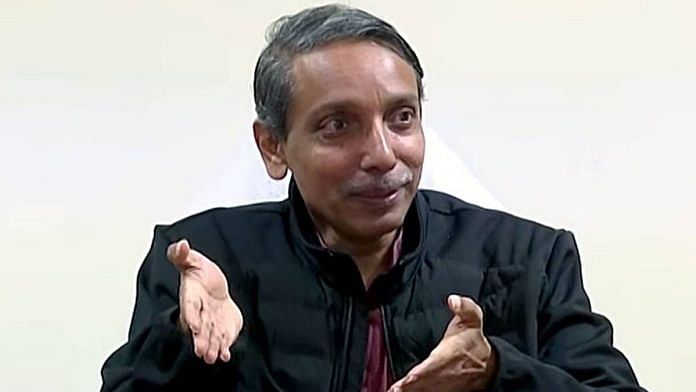


New Delhi: The University Grants Commission (UGC) is set to introduce revised norms for faculty recruitment in higher education institutions, aiming to remove “rigid” existing eligibility criteria and offer universities greater flexibility in hiring teachers from diverse, multidisciplinary backgrounds, UGC Chairperson M. Jagadesh Kumar said.
In an interview to ThePrint Wednesday, Kumar explained that the current regulations, which set the minimum qualifications for faculty appointments in universities and colleges, were released in 2018, before the release of the National Education Policy (NEP) 2020, which advocates for the inclusion of industry experts and people with multidisciplinary education in educational institutions to help bridge the gap between academia and industry.
The draft of revised guidelines will soon be released in the public domain for wider consultations.
Under the current norms, a candidate seeking appointment at the assistant professor level—the entry-level position—must have cleared the UGC NET. For appointments at the associate professor and professor levels, a PhD is mandatory, and a minimum of at least 10 years of teaching experience is required to be promoted to the rank of professor.
Kumar said that the existing guidelines for teacher recruitment focus primarily on academic qualifications, particularly the emphasis on publishing in journals and accumulating Academic Performance Indicator (API) points, which is a quantitative way to measure the quality of a teacher’s work and proficiency level.
“As a result, the recruitment process has become more about meeting quantitative metrics rather than ensuring quality. To address this, the UGC is revising the 2018 regulations to broaden the opportunities for faculty appointments. The aim is to offer universities greater freedom in selecting faculty members, especially those with expertise across various disciplines,” he said.
“The revised norms will provide multiple pathways to the universities to hire faculty members. They will encourage institutions to appoint teachers who bring diverse perspectives and skills to the academic environment, aligning with the broader goals of the NEP to integrate industry knowledge into higher education,” Kumar added.
Citing an example of the current rigidity in faculty recruitment, Kumar explained, “For instance, if someone has completed a BA in economics, followed by an MA in sociology, and then goes abroad to pursue an MA in sociology and returns to do a PhD in economics, they would still face a hurdle when applying for a university position. Some universities reject their application, saying their MA is not in economics, but in sociology, and therefore, they don’t meet the eligibility criteria.”
Kumar emphasised that this issue is not solely the fault of the universities. “The real problem lies in the way we’ve structured our regulations,” he added.
The revised norms will also do away with the API which is used for promotions of college and universities teachers, Kumar said.
The API is categorised into three areas: teaching, learning, and evaluation; co-curricular, extension, and professional development; and research and academic contributions. “The excessive focus on API scores has led faculty members to prioritise maximising these scores, often at the expense of making meaningful contributions,” he added.
Also read: ‘NTA incapable of conducting exams’ — cancellation of UGC NET exam leaves aspirants angry, frustrated
Under the existing 2018 regulations, a candidate is required to have at least 55 percent marks in their postgraduate degree. However, with the introduction of NEP 2020, anyone holding a four-year undergraduate degree with a 7.5 CGPA can now directly enroll in a PhD programme, eliminating the need for a master’s degree.
Kumar explained, “Under the new regulations, a person with a four-year undergraduate degree and a PhD can also be eligible for an assistant professor position, without needing a master’s degree.”
Similarly, other UGC recommendations involve industry experts and innovators within academia.
He emphasised that the new regulations will transform the way we recruit faculty and create an ecosystem that nurtures their diverse strengths. “Some may be inclined towards research, others may focus on developing technology, while some might prefer writing textbooks. It’s essential to promote a variety of roles and contributions within our university system. These new regulations will offer our faculty the flexibility and opportunities to pursue their individual passions, while also minimising the challenges they face,” Kumar said.
“Under new regulations, the faculty will excel in several areas and not just in publishing research papers,” he added.
(Edited by Zinnia Ray Chaudhuri)
Also read: ABVP demands CBI probe into ‘entire mechanism’ of NTA, announces nationwide protests



